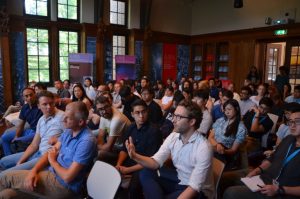Participants of the 2019 summer school will explore interdisciplinary approaches towards a sustainable integration of designing disciplines for smart urban mobility and the new urban development area Haven-Stad in Amsterdam. They will deal with the following themes: the role and function of smart urban mobility, including mobility as a service (MaaS) and emerging mobility options; travel behaviour of a growing number of users; sustainability challenges and fairness in transport planning; public and semi-public spaces (and social dynamics therein); exploration of alternative, marginal and emerging social uses of urban developments as meeting places and culture; urban integration in the overall mobility system; the interface between architecture and infrastructure with the urban fabric; programming of future transport nodes and the accessibility to and from such transport hubs of all types of smart mobilities (e.g. conventional public transport, shared mobility, autonomous taxis, etc.).
Tag Archives: connectivity
Stations as Nodes
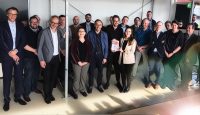 .
. 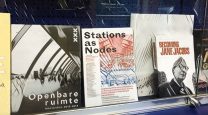
Official book launch Stations as Nodes
See also: Metropolitan Stations and Integrated Mobility Challenges
Metropolitan Stations
Places for Change and Innovation
A train station has always been a space for many and it is about time to be approached and designed as such. The urgency is there. Stations have become an intermodal hub with a large crowd being present. From a human perspective, it makes sense: Stations are part of the larger network of public spaces, indoors – outdoors, and interlink other hybrid places and buildings. The more people flock to the city, the more move and stay at stations and/or elsewhere close-by. The role of stations in the network strengthens. More and different people are present. As such, from the observation that the whole is more than the sum of fixed demarcated elements, ever-changing human hubs are perfect settings for place-based innovation in design and by design, because where people move, society changes, and where strangers meet change takes place.
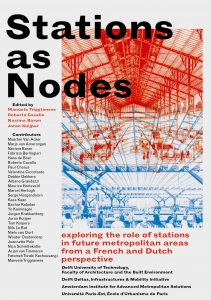
Read the article: Metropolitan Stations, Places for Change and Innovation (2018) by Maurice Harteveld (c)
See also: Station as Nodes and Integrated Mobility Challenges
Integrated Mobility Challenges
Exploring Sustainable Urban Integration Approaches
in Future Metropolitan Areas
The Amsterdam Institute for Advanced Metropolitan Solutions (AMS), the Delft Deltas, Infrastructures & Mobility Initiative (DIMI), the University of Paris-Est and ARENA Architectural Research Network join Delft University of Technology in the organisation of the interdisciplinary 2018 Summer School: Integrated Mobility Challenges in Future Metropolitan Areas. This is a follow up of Making the Metropolis edition held in Amsterdam in August 2017 and the Stations of the Future event held in Paris in March 2018.
Integrated Mobility Challenges will explore interdisciplinary approaches towards a sustainable urban integration of rail-metro stations. At the main point of intersection between the railway and the city, stations are key elements of the organization of the intermodal transport but also catalysts of urban developments. The main question will be: which approaches and scenarios can be tested and applied to these intermodal nodes, particularly when dealing with lack of space and growing number of users? By using Amsterdam (case of Sloterdijk station area) as test-bed and design location you will exchange knowledge and apply different strategies of sustainable solutions.
When
From 21st to 28th August 2018
Where
Delft University of Technology (NL) with fieldwork in Amsterdam (NL)
Target Group
60 researchers or young professionals and master students in Architecture, Urban Design and Planning, Environmental Design and Sciences, Landscape Architecture, Transport, Infrastructure and Logistics, and related disciplines.
More information can be found here: Summer School Integrated Mobility Challenges
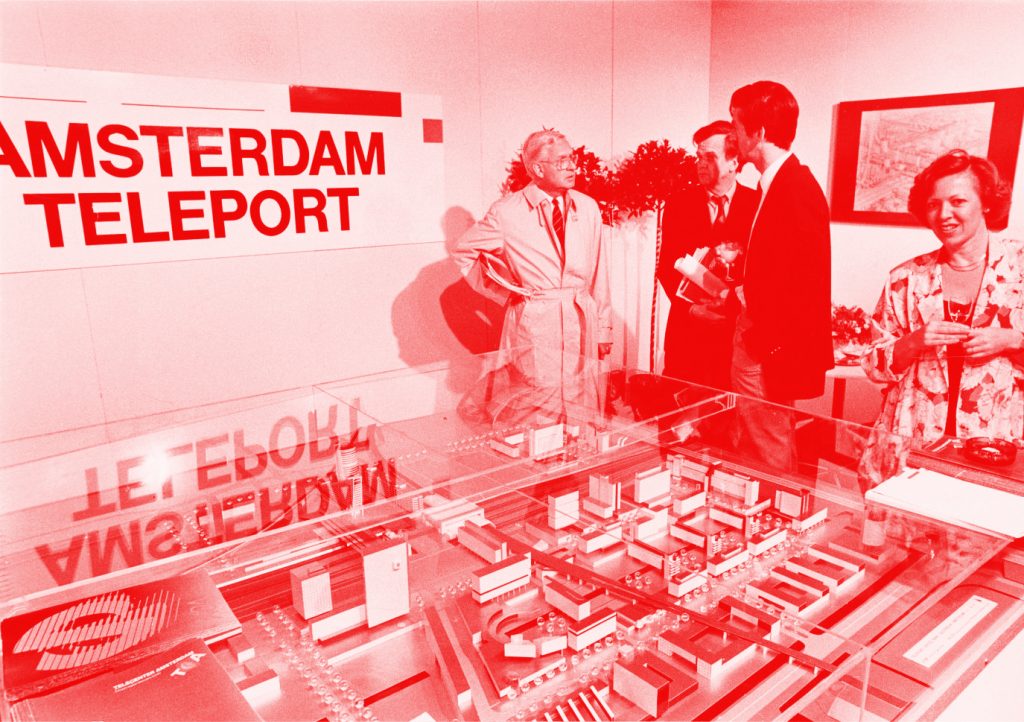
UPDATE: See also Metropolitan Stations and Stations as Nodes
City of the Future Competition
Making Cities in Times of Major Transitions
On January 10, 2018, our research ‘The City of the Future’ has starts. This study explores new ways of city making by using five test locations of 1 x 1 km in the cities of Amsterdam, Rotterdam, The Hague, Utrecht and Eindhoven (five most populated cities in The Netherlands). We question how we can interrelate urban development, whilst urban design, planning and engineering, to upcoming challenges like shifts in transport, energy transition, circular economy and other system and network innovations, in times of the next generation of densification.
Continue reading
Exploring Metropolitan Design
The Amsterdam Institute for Advanced Metropolitan Solutions (AMS), the Delft Deltas, Infrastructures & Mobility Initiative (DIMI), and the International Forum on Urbanism (IFoU) joined Delft University of Technology in the organisation of the interdisciplinary 2017 Summer School:‘Making the Metropolis: Exploring Interdisciplinary approaches in Metropolitan Design Engineering’.
Making the Metropolis
Quote
The Amsterdam Institute for Advanced Metropolitan Solutions (AMS), Delft Deltas, Infrastructures & Mobility Initiative (DIMI), the International Forum on Urbanism (IFoU) and Delft University of Technology join together in the organisation of the interdisciplinary 2017 Summer School: Making the Metropolis, Exploring Interdisciplinary Approaches in Design Engineering. (22 to 30 August 2017, in Delft and Amsterdam)
This summer school starts from the observation that today’s revolution of new technologies, theories and methods are making advanced metropolitan solutions possible, but acknowledges that no single actor or stakeholder can make metropoles move in a specific direction. Metropolitan solutions require cooperation between knowledge institutes, companies and governments, as well as between cities, citizens and civil society.
Continue reading
Joining Design for Values Institute
Today an exiting new institute has opened: The Delft Design for Values (DD4V) institute! The DD4V institute brings together practices and expertise in the field of design for values. It integrates my modest work with those of many others, and expand the existing. As such in the new institute we provide mechanism for the incorporation of moral and social values in technologies through their design processes. Research activities of DD4V will be organised along four themes: Value operationalisation, value assessment, value dynamics, and value conflict.
Continue reading
Mastering the Metropolis
As the majority of the world population is living in cities today, urban environments have become a place for many people. We are obliged to aim at sustainability and safeguard people’s quality of life, and human wellbeing. These challenges are motivating science and society to approach metropolises differently. Advanced metropolitan solutions to overcome problems are being made possible by today’s revolution of new technologies, theories and methods. But no actor or stakeholder can make metropoles move in one certain direction. Metropolitan solutions require cooperation between knowledge institutes, companies, governments, between cities, citizens and civil society.
The new MSc programme Metropolitan Analysis, Design and Engineering (MADE) integrates analysis, design and engineering in the sphere of the flows in the city; the physical, digital and social environments; and the city and its citizens. As full master programme, the MSc MADE prepares students to be specialised on one hand and an integrator on the other. A MADE graduate will be able to create synergy between specialists from other disciplinary backgrounds. You can make a cross-over too!
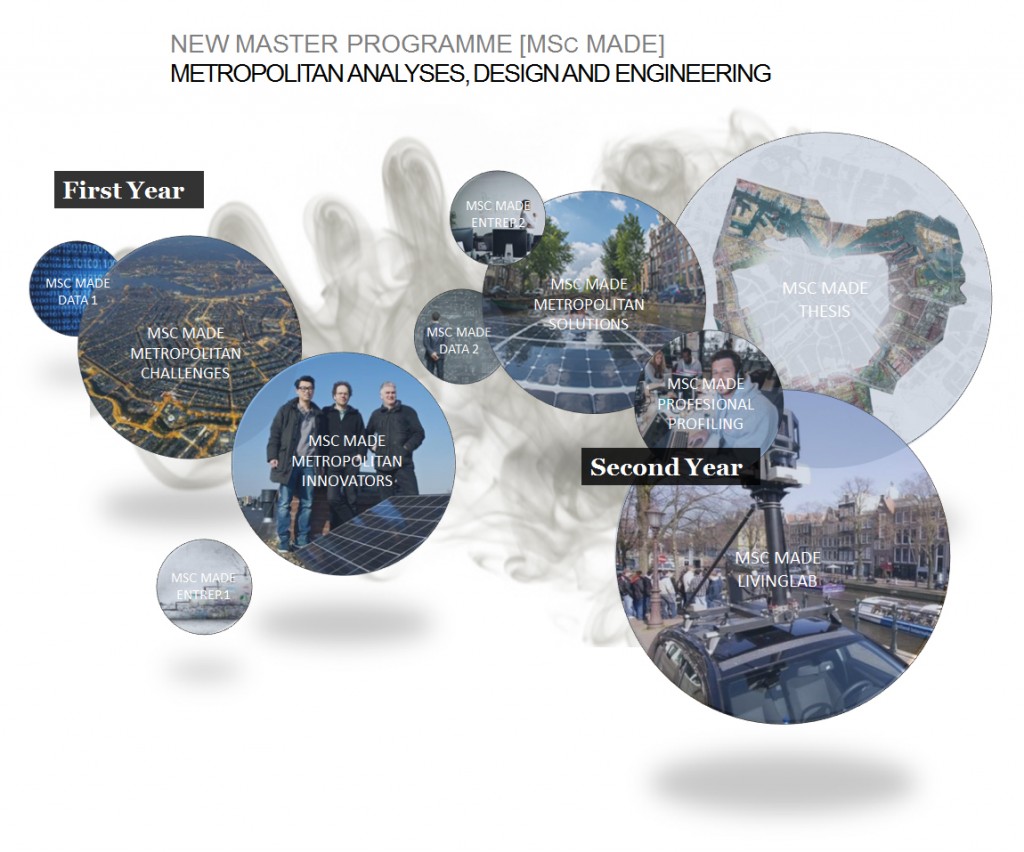
The new trans- and interdisciplinary programme will be offered as a joint degree programme by Delft University of Technology and Wageningen University. It is built on their joint research activities, and consolidated in their participation together with the Massachusetts Institute of Technology (MIT) in the Amsterdam Institute for Advanced Metropolitan Solutions (AMS).
Continue reading
Public Space for all Nations
Good public spaces enhance community cohesion and promote health, happiness, and wellbeing for all citizens.
It has been with this quote that UN Habitat launched the Global Public Space Programme in an aim to improve the quality of public spaces worldwide. Of course, without doubt, the programme stands for a crucial challenge to make our urbanised world better, but what to do? The ideas on this have been matured and agreements seem to saturate the scope at the recent Habitat III conference held last week in Quito. A list of final set criteria is emerging, but this cannot mean that we’re done… By no means this listing will work if stakeholders do not accept that people gather on a variety of places around the globe, in a variety of cultures, hence not just in those urban spaces which are created by Western idealists’ minds: publicly-owned outdoor space.
Continue reading

